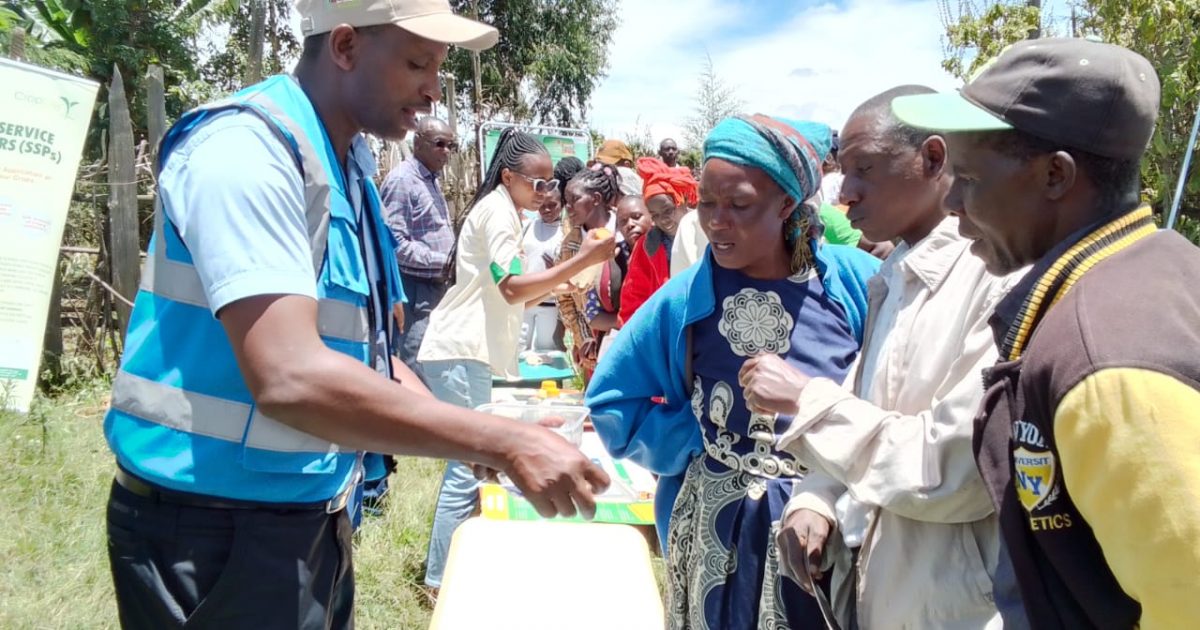Farmers should adopt integrated weed management practices to improve crop yields and reduce pesticides’ use to safeguard human health and the environment.
Speaking during a field training organized by the Agricultural Association of Kenya (AAK) in partnership with the Nakuru County and Sub-County Agricultural Department that was attended by over 100 farmers in Turi ward, Nakuru County Crop Protection Officer Hanna Oduor underscored the harmful effects of unchecked pesticide use.
“Over-reliance on pesticides is dangerous not only to the crops but also to human health and the environment,” she said adding that there was need to adopt safer, sustainable methods like crop rotation, timely weeding, and proper herbicide application to preserve the land for future generations.
Ms Oduor emphasized that poor weed control can reduce crop yields by up to 60 percent, a figure supported by agricultural studies across Kenya.
“Weeds compete for water, nutrients, and sunlight. If not properly managed, they take over the fields and drastically lower productivity,” she added.
She said farmers should adhere to instructions given by the Pest Control Products Board (PCPB) on proper pesticide handling, storage and licensing requirements.
The Crop Protection Officer emphasized that only certified pesticides should be used and warned against purchasing products from unlicensed sellers.
“All farmers should know what they are applying on their farms and understand the long-term impact,” said Ms Oduor.
During the event, Spray Service Providers (SSPs) and trained agricultural professionals responsible for safe and effective pesticide application were introduced where farmers were encouraged to work with SSPs to avoid overspraying and personal exposure that could pose health risks to themselves and the environment.
“Using certified spray service providers reduces health risks and ensures proper dosage,” said Julius Mwangi, Molo Sub-County Agricultural Officer.
The meeting heard that waste disposal should also be addressed. “Do not burn, bury, or reuse empty pesticide containers,” warned Ms Oduor.
“Triple rinse and return them to collection points. Improper disposal poisons soil and water and even affects livestock health,” she noted, adding that only 30 percent of farmers in the region currently follow recommended disposal practices.
Nakuru County Officer for Irish Potatoes Cultivation, Linnet Echesa stressed the importance of using non-chemical methods such as crop rotation and cover crops.
“Rotating potatoes with cereals or legumes like sorghum and beans helps reduce weed and pest pressure while improving soil fertility,” she advised.
Farmers James Mwangi from Elburgon and Mary Wambui from Turi shared their practical experiences. “After switching to mulching and using SSPs, my yields went up by 15 percent. I also don’t get headaches after spraying like before,” said Mwangi.
Wambui on her part said, “We used to throw pesticide cans into rivers without knowing. Now we rinse and return them—we’re protecting our children and our crops. Thanks to the numerous training opportunities we have undergone as farmers.”
Agricultural partners from the AAK represented by Velma Wekesa introduced the farmers to another cost-effective method of pest control using an agricultural drone.
“This is technology that is taking farming to the next level in Molo.” She concluded.
Benson Ngige from AAK announced plans to expand outreach in remote areas through mobile learning clinics.
“Farmers are hungry for this knowledge. With support from PCPB and SSP networks, we can revolutionize weed and pest management in this county,” he said.
As weed pressure continues to threaten agricultural production in Molo—where parthenium and other invasive species are spreading rapidly—stakeholders urged farmers to apply the knowledge shared during the training.
With improved weed control, safe pesticide use, and proper disposal, the region is poised for healthier harvests and a safer farming future.
By Emily Kadzo and Elvin Abere





